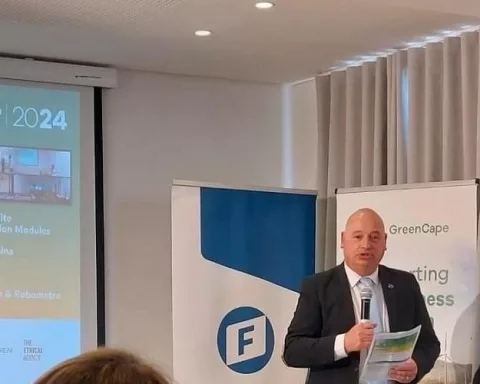Solar MD, a lithium-ion battery storage manufacturer, has broken ground on the continent’s first gigawatt battery storage manufacturing plant in Cape Town, South Africa. This development marks a significant milestone for the African continent and Cape Town, setting them on a path towards a smarter, cleaner, and more secure energy future.
Expansion and Employment Opportunities
The new plant, which is four times the size of Solar MD’s current facility, will elevate the company’s production capacity from approximately 120 batteries per day to as many as 300 per day. This expansion will generate more employment opportunities, doubling the current number of 120 jobs to 240.
Crucial Partnerships
Solar MD’s collaboration with the City of Cape Town, the provincial government’s investment promotion partner Wesgro, and GreenCape – the city’s special purpose vehicle for the green economy – has played a crucial role in the company’s success. Since its inception in 2015, Solar MD has invested over R150 million into its developments and plans to invest nearly R1 billion over the next five years.
Positive Economic Impact
GreenCape’s support of Solar MD has facilitated R1.733 billion in investments in Cape Town during the last financial year, resulting in hundreds of job creations. In the next year, the city aims to expand its investment campaigns promoting Cape Town as a green energy hub. It also seeks to extend skills development opportunities to more communities and small businesses.
A Beacon for Sustainable Energy
The establishment of this gigawatt battery storage manufacturing plant solidifies Cape Town’s reputation as a pioneer in sustainable energy solutions. As Africa’s first dedicated facility of its kind, it is a beacon of inspiration for other cities and nations to follow suit and invest in clean, renewable energy technologies.
Combating Climate Change
The plant’s increased production of lithium-ion batteries is vital in reducing our reliance on fossil fuels and harnessing the potential of renewable energy sources, such as solar power. In addition to its substantial economic impact, the plant will also contribute to the global push towards achieving energy independence and combating climate change.
A Catalyst for Sustainable Growth
The African continent’s abundant natural resources and favorable climate conditions make it well-suited for the adoption of renewable energy technologies. This groundbreaking manufacturing plant in Cape Town serves as a catalyst for further expansion and innovation in the green economy, empowering communities, and fostering sustainable growth across the region.
A Brighter, More Sustainable Future
As construction progresses on this state-of-the-art facility, Cape Town asserts itself as a frontrunner in the green energy revolution. The city’s unwavering commitment to forging strategic partnerships, investing in cutting-edge technologies, and nurturing local talent ensures a brighter, more sustainable future for generations to come.












